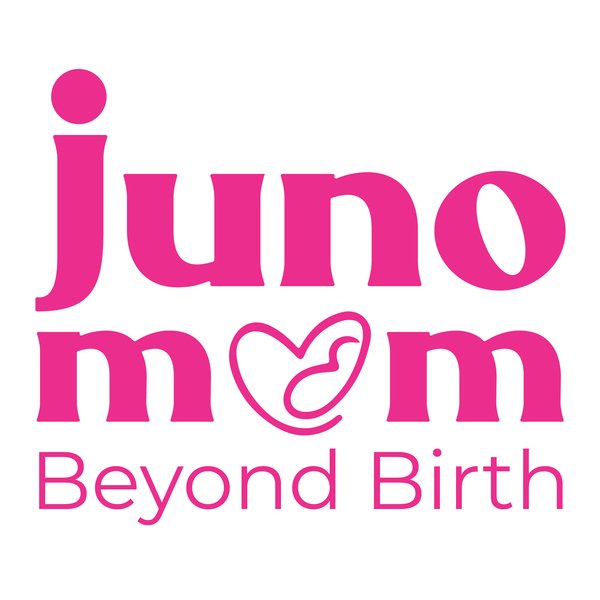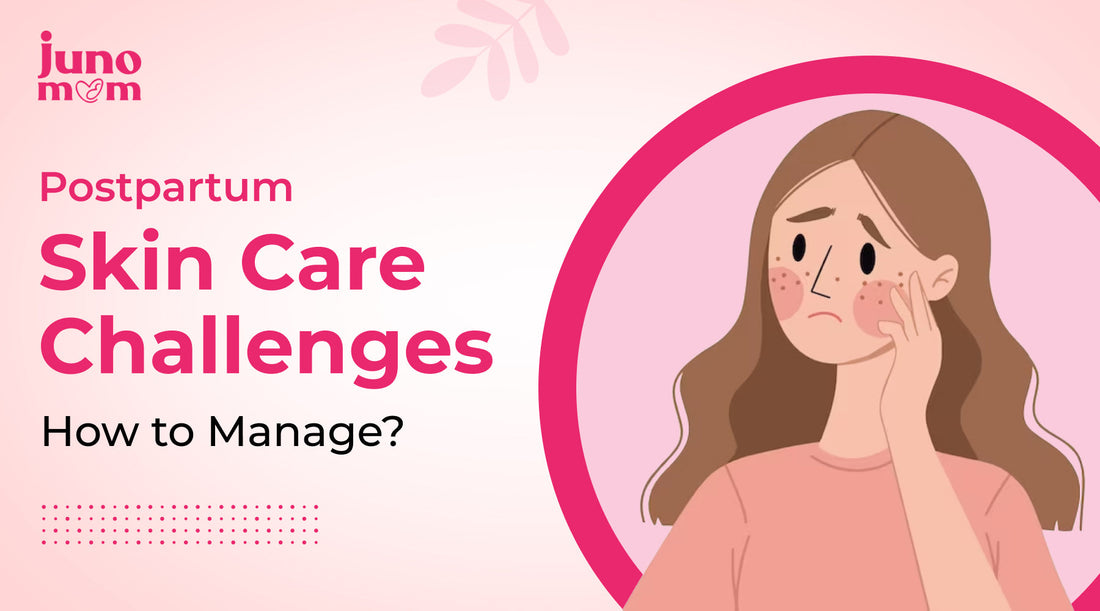Motherhood is beautiful, you have just had the baby and all your time is for the baby now. You are surely in your recovery journey and this time is really important to heal.
However, postpartum skincare challenges can feel overwhelming. Your body has just been through a lot, and your skin often shows it—dryness, acne, pigmentation, hair fall, and stretch marks are all common concerns.

After pregnancy, hormonal changes, lack of sleep, and stress can take a toll on your skin, making it more sensitive and prone to issues. Many new moms find it challenging to prioritise self-care while adjusting to their newborn's needs. However, taking a few simple steps can help restore your skin’s health and boost your confidence. The good news? With the right postpartum skincare routine, you can manage these issues effectively.
Let's talk about what happens to your skin after delivery and how to care for it properly.
Common Postpartum Skin Challenges & Solutions
Postpartum Acne
Hormonal shifts after childbirth can cause breakouts, especially on the face and back.

Solution: Use gentle, non-comedogenic skincare products and keep your skin hydrated. Opt for mild cleansers and lightweight moisturizers that won’t clog pores.
Dry & Dull Skin
Pregnancy hormones give a glow, but after delivery, the skin may feel dehydrated due to fluid loss and lack of sleep.

Solution: Moisturize regularly and drink plenty of water to restore hydration. Use a hydrating serum for extra nourishment.
Hyperpigmentation & Melasma
Dark patches (melasma) on the face can linger after pregnancy due to hormonal changes.

Solution: Use sun protection daily and gentle brightening treatments with natural vitamin C to help even out skin tone.
Stretch Marks & Scars
Skin stretches during pregnancy, leading to marks on the belly, thighs, and breasts.
Solution: Apply a nourishing Stretch Marks & Scar Oil to improve elasticity and fade scars over time. Regular massage with oil can also boost circulation and skin healing.
Postpartum Hair Fall
Hair shedding increases due to hormonal shifts, often peaking around three months postpartum.
Solution: Use a Postpartum Hair Oil to nourish your scalp and promote regrowth. Eating a balanced diet rich in vitamins and minerals also supports hair health.
Sensitive & Sore Nipples
Breastfeeding can cause cracked and irritated skin, making it painful for moms.
Solution: Apply Natural Nipple Butter for deep hydration and healing. Choosing a nipple butter made with natural, baby-safe ingredients ensures it’s safe for both mom and baby.
Under-Eye Circles & Puffiness
Sleep deprivation can lead to dark circles and puffiness around the eyes.

Solution: Use a cooling eye gel or cucumber slices to soothe the area. Hydration and a nutrient-rich diet also help reduce tired-looking eyes.
Best Practices for Postpartum Skincare
- Stick to a simple skincare routine with hydrating cleansers, gentle exfoliation, and nourishing serums.
- Choose natural, toxin-free products that are safe for both mom and baby.
- Be patient—your body is adjusting, and healing takes time.
- Prioritise hydration by drinking plenty of water and using a good moisturiser.
- Get enough rest (whenever possible) to support overall skin health and recovery.
- Protect your skin from the sun by applying SPF daily to prevent hyperpigmentation from worsening.
How Can Juno Mom’s Postpartum Skincare Products Help?
-
Scar & Stretch Marks Oil: Hydrates and supports skin elasticity, reducing the appearance of stretch marks over time.
-
Postpartum Hair Oil: A nourishing formula to strengthen hair and promote regrowth after excessive postpartum hair fall.
- Natural Nipple Butter: Soothes and protects sore nipples, making breastfeeding more comfortable.
Incorporating these products into your daily routine can help ease your postpartum recovery journey while ensuring your skin remains healthy and well-nourished.
Conclusion
Your postpartum recovery journey includes caring for yourself. Skin challenges are common, but you can support your skin's healing process with the right postpartum skincare routine and products. Prioritising self-care doesn’t mean neglecting your baby—it means ensuring you feel your best while caring for your little one.
Taking care of your skin is just another way of taking care of YOU.





